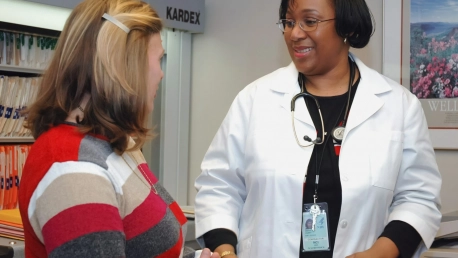Navigating the US healthcare system often involves a critical decision for the sick: wait for a primary care physician’s appointment, which can be time-consuming, or opt for quick care at one of many urgent care or retail clinic options. This choice not only influences the individual’s immediate health outcomes but also has a broader impact on public healthcare dynamics.With primary care providers being the traditional frontline of medical care, generating continuity of care, they are often the preferred option for comprehensive health management. Nonetheless, their availability can be limited, causing delays in treatment. Conversely, urgent care centers and retail clinics offer more immediate access to medical attention, although they may not provide the same depth of care or comprehensive health records integration that a regular doctor would.This tension reflects larger issues within the healthcare system, such as access to care, the distribution of medical resources, and the efficiency of healthcare delivery. As individuals navigate these choices, their decisions ripple across the healthcare landscape, affecting not just their well-being but also the functionality and sustainability of the healthcare system as a whole.
The Growing Popularity of Walk-In Clinics
Over the past five years, a trend has emerged from the data collected by MDVIP and Ipsos: convenience is king. With half of American patients opting for walk-in clinics, the lure of quick, on-demand medical care is evident. This preference reflects our society’s inclination toward immediate gratification, a value that has begun to overshadow the slower yet thorough pace of traditional primary care. The choice may seem inconsequential for a seemingly inconspicuous sore throat or ankle sprain, but it’s far more complex when the patient-doctor relationship is at stake.While urgent care centers and retail clinics have carved out their niche in the healthcare system, they were never intended to replace the comprehensive role of a primary care physician. Their rise in popularity, while solving immediate health concerns, presents a worrisome trend. The ability to see a doctor on a whim may offer temporary relief, but at what cost to continuity of care?
Dr. Klemes’ Advocacy for Primary Care
Internist Dr. Andrea Klemes stands as a vocal champion for the irreplaceable value of primary care physicians. Her warnings come not from a place of competition but from genuine concern. Dr. Klemes points to disconcerting narratives where urgent care’s episodic treatment has blinded patients to the bigger picture of their health. One individual, frequenting urgent care without receiving comprehensive evaluations, narrowly escaped a cardiac crisis thanks to a visit to a PCP. Another example involves a former smoker whose persistent respiratory problems, treated with repetitive antibiotics, masked an underlying lung cancer.These cautionary tales are not rare exceptions but a reflection of a rising trend of individuals who bypass regular check-ups. In doing so, they miss out on preventive measures and risk missing early diagnoses of severe health conditions. Urgent care’s quick fixes may eclipse the need for a thorough and ongoing understanding of a patient’s health, ultimately endangering lives.
The Consequences of Overlooking Primary Care
By overlooking the importance of primary care, patients run the risk of not just delayed diagnoses but also inappropriate treatment. The overprescription of antibiotics, a concern in public health, is one such consequence of the frequent utilization of urgent care. Moreover, research from institutions like the Mayo Clinic echoes these concerns, revealing lower continuity of care among patients who opt for retail clinic services. This fragmented care model stands in stark contrast to the cohesive management that established physician-patient relationships can offer.A significant disadvantage of bypassing a PCP is the forfeiture of enduring health oversight. Primary physicians are trained to scrutinize health concerns within the larger frame of a patient’s medical history, lifestyle, and risk factors. This holistic perspective is critical for catching wind of silent killers like hypertension or diabetes, often residing in the background unnoticed until a health crisis brings them to the fore.
The Unmatchable Value of Primary Care Physicians
While urgent care centers provide a quick solution for immediate health issues, they lack the comprehensive and ongoing care that primary care physicians (PCPs) deliver. Dr. Klemes stresses the importance of PCPs, whose scope extends beyond treating illnesses to preventive measures, managing chronic conditions, and offering personalized health advice. This detailed care is vital for the sustained health of patients across all ages.Though the rapid support from urgent care fits our busy lives, it is not equipped to replace the thorough, preventive, and continuous care from a dedicated PCP. Relying too heavily on urgent care can lead to a disjointed healthcare experience, which can undermine long-term health management. To maintain optimal health for individuals and the healthcare system, the indispensable role of primary care must be acknowledged and prioritized.









